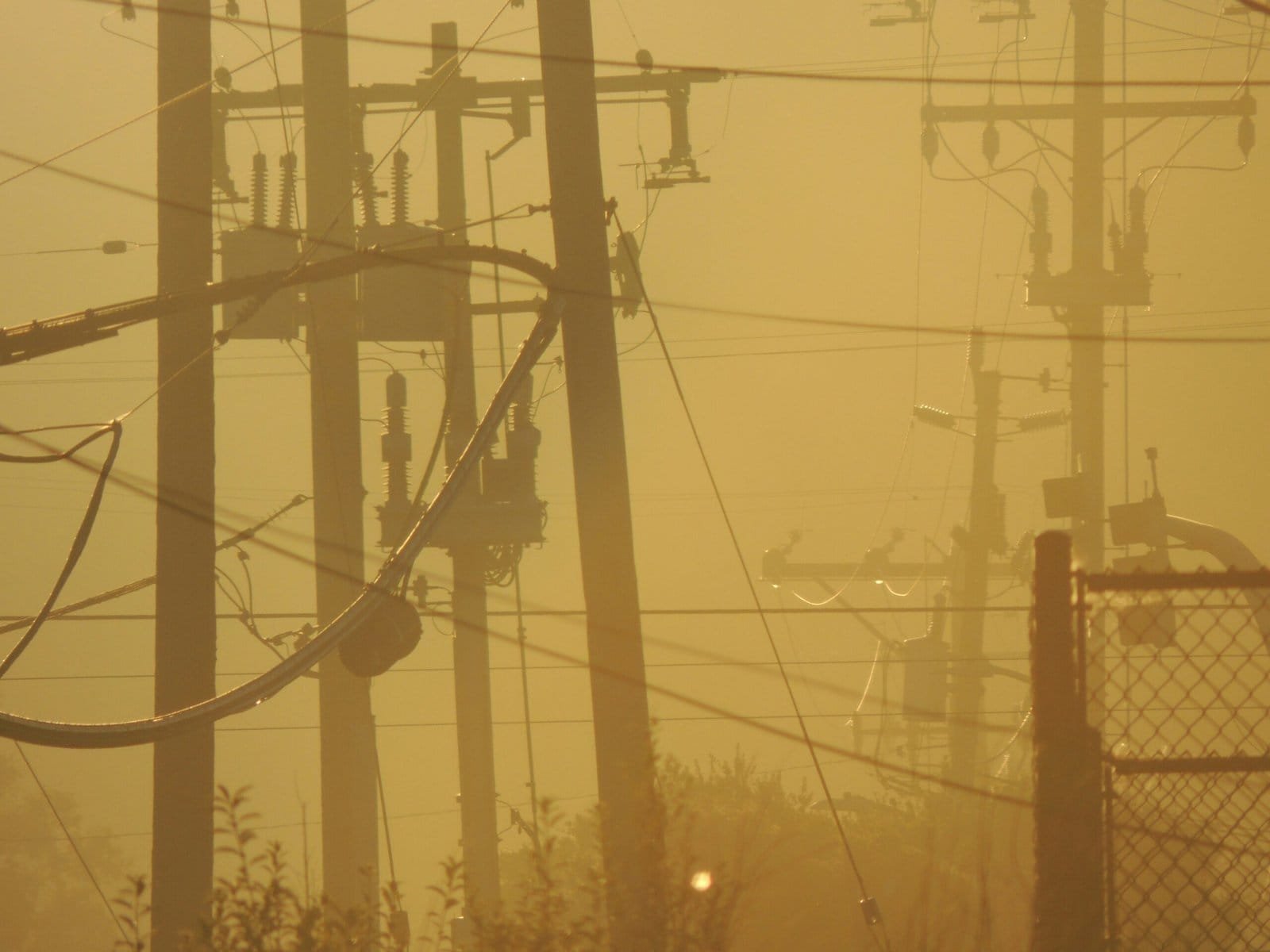Learn essential tips for understanding and managing power outages. This comprehensive guide covers the causes of outages, safety tips, food preservation methods, communication strategies, and preparation techniques to help you and your family stay safe and calm during unexpected disruptions. Discover how to create an emergency kit, keep food safe, maintain communication with loved ones, and turn an inconvenient situation into a memorable family experience. Embrace preparedness and resilience in the face of power outages.
Understanding Power Outages: What You Need to Know
A power outage is defined as a temporary loss of electrical power supply to a particular area. These interruptions can range from brief fluctuations to extended periods without power. The circumstances leading to these outages are often varied and can include severe weather conditions, equipment failures, or scheduled maintenance conducted by utility companies.

Storms are among the most common culprits, with strong winds and heavy precipitation frequently causing tree branches to fall on power lines or lightning strikes damaging transformers. Additionally, aging infrastructure and unexpected equipment malfunctions can lead to outages, making it imperative for communities to invest in regular maintenance and upgrades. Power outages can also result from localized incidents, such as accidents involving utility poles or road construction activities.
Please, read our post and do not forget to check my YouTube channel “Grig Stamate – Interior Design Solutions”:
https://www.youtube.com/@GrigStamate
You will find here thousands of ideas for your home interior and outdoors.
Allow me to mention one of them:
Small Dreamy Family Homes – Creative Interior Design Ideas, #3 (video)
The frequency of power outages can differ significantly based on the region and local infrastructure. Some areas may experience numerous outages throughout the year, while others might encounter them infrequently. On average, studies indicate that most households can expect to face a power outage at least once a year, with larger cities often seeing higher rates due to their dense population and stressed electrical grids.
The unpredictability of power outages means that they are often beyond our control, necessitating a proactive approach to preparedness. Understanding the various causes of these interruptions is crucial for developing appropriate strategies to manage them. Being knowledgeable about potential risks allows individuals and families to devise contingency plans and assemble emergency kits, increasing their resilience in the face of unforeseen circumstances. This preparedness can significantly mitigate the adverse effects of power outages on daily life.
Stay Calm: Don’t Panic! Here’s What to Do First
Experiencing a power outage can trigger feelings of anxiety and concern. However, it is essential to stay calm and manage the situation efficiently. The first step in addressing a power outage is to assess your immediate environment. Check your flashlights to ensure they are operational and have fresh batteries. This will not only help you navigate through the dark but also provide a sense of security. If you do not have a flashlight, locating candles can also serve as an effective alternative for light. However, remember to exercise caution while using them to prevent any fire hazards.
Next, it is crucial to check the status of your electronic devices. Make sure that your mobile phone is fully charged. In today’s digital age, a charged cell phone can be a vital tool for communication and information gathering. If the power outage persists, your phone may also be your link to accessing news updates or contacting utilities for more information on the situation.
After you have ensured adequate lighting and charged devices, take a moment to confirm the power outage status. You may want to check if the outage is limited to your home or affecting a larger area. This can be done by looking for signs in your neighborhood, such as unlit streetlights or checking with next-door neighbors. Additionally, many communities use mobile applications or social media platforms to provide updates on power outages, making it easier for residents to stay informed without added stress.
By addressing these key areas—assessing your surroundings, ensuring proper lighting, and verifying the scope of the power outage—you can maintain your composure, which is crucial during these unexpected circumstances. Taking a structured approach can help alleviate anxiety and prepare you for any subsequent steps that may be necessary.
Keep Food and Drinks Safe: What You Should Know
During a power outage, maintaining the safety of food and drinks becomes a paramount concern for many households. Understanding how long food can last without refrigeration is crucial to minimizing waste and ensuring the health of those consuming it. Generally, perishable foods such as dairy products, meat, and fish should not be kept in temperatures above 40°F for more than two hours. If the power outage extends beyond that window, it is advisable to discard any items that may have been compromised.
Awareness of spoilage signs is equally important. Foods that have developed an unusual odor, color, or texture may indicate a potential health risk. It is essential to trust your senses: if it does not look or smell right, it is best to err on the side of caution and dispose of the product. Additionally, cooked foods can also spoil if left unrefrigerated for too long, so regular checks should be done if a power outage lasts an extended period.
To creatively manage perishables during a power outage, consider strategies that could help preserve your food. One practical method is to keep your refrigerator and freezer doors closed. A fully stocked freezer can maintain its temperature for approximately 48 hours if left unopened, which can be extended further if ice packs or dry ice are utilized. Another creative approach is to move food items outdoors if the weather permits—particularly in colder seasons—as outdoor temperatures may remain cooler than indoor settings.
By knowing which foods can withstand a little heat and which should be prioritized for consumption, individuals can assist in managing their food supplies effectively. Ultimately, preparing for such situations involves a blend of strategic planning and creative resourcefulness, ensuring both personal and communal food safety. In conclusion, being informed about food safety during outages can alleviate the collective worry of grocery loss while also promoting responsible consumption practices.
Communicate: Keep in Touch with Loved Ones
During a power outage, maintaining communication with family and friends is of paramount importance. The uncertainty that often accompanies such situations can lead to anxiety, and by ensuring lines of contact remain open, you can alleviate some of that stress. One effective strategy is to utilize alternative methods of communication. In the absence of electricity, cellular networks may still function, allowing you to remain connected via text messages or social media platforms. These options generally require less power than voice calls and can help you share your status quickly and efficiently.
Establishing a ‘safety buddy’ system ahead of time can also be beneficial. Designate one or two trusted individuals with whom you will check in during a power outage. Share your plans regarding potential meeting spots or agree upon a time to communicate updates about your situation. This arrangement can significantly enhance your safety, as having a designated contact can provide peace of mind, knowing that someone is aware of your whereabouts and well-being.
It is crucial to use your phone wisely during outages, especially if battery life is limited. Prioritize essential communications, such as reaching out to your safety buddy, over less critical conversations. Consider turning off non-essential features like Wi-Fi and Bluetooth to conserve power. When allowing others to know you are safe, a brief text can suffice, ensuring your device retains enough energy for any emergency calls that may be necessary.
In summary, effective communication during a power outage can provide both support and reassurance. By adapting alternative communication methods, establishing a safety buddy system, and using devices judiciously, you can foster connections that mitigate the stress associated with such events. Ensuring that your loved ones are informed offers comfort and encourages a collective approach to weathering unexpected disruptions.
Safety First: Precautions for a Stable Home Environment
During a power outage, ensuring safety becomes a paramount concern for every household. One of the primary precautions involves maintaining a well-stocked first aid kit, which should be easily accessible. This kit should include essentials such as adhesive bandages, antiseptic wipes, gauze pads, scissors, and even prescription medications. By preparing this kit in advance, you equip yourself to respond quickly to any minor injuries that may occur during the chaos of an unexpected blackout.
In addition to first aid readiness, it is crucial to be aware of the hazards associated with generators. While they provide a valuable source of power during outages, improper usage can lead to carbon monoxide poisoning. To mitigate this risk, ensure that any generator is operated outdoors in a well-ventilated area, far from windows and doors. It is advisable to install a carbon monoxide detector in your home, especially near sleeping areas, to alert you to any dangerous buildup of this odorless gas.
Securing your home is also an essential step during a power outage. Make sure that all doors and windows are locked to deter potential burglars. Additionally, it is wise to avoid using candles as a source of light, as they pose a significant fire hazard. Instead, opt for battery-powered lanterns or flashlights, which provide safe illumination without the risks associated with open flames. Having extra batteries on hand is essential for ensuring that these devices remain operational throughout the outage.
By incorporating these safety measures into your preparedness strategy, you can create a stable home environment, minimizing risks and enhancing the well-being of all household members during a power outage. Remember, safety should always be the first priority in any emergency situation.
Keep It Light: Fun Activities to Pass the Time
When faced with a power outage, it is easy to lament the loss of modern conveniences. However, this interruption can also provide a unique opportunity to connect with family and friends in a more intimate setting. Engaging in activities that do not rely on electricity can transform an inconvenient situation into a memorable experience.
One entertaining option is to delve into the art of storytelling. Gather everyone around with flashlights or candles, and share captivating tales. These stories can range from personal anecdotes to spooky ghost stories, encouraging each participant to contribute and ignite their imagination. As the shadows flicker, the richness of shared narratives will foster bonding and laughter.
Another classic choice is playing board games or card games. Dust off those long-forgotten games stored in your closet, as they can provide hours of enjoyment. Whether it is a competitive round of Monopoly or a cooperative game like Uno, these activities can rekindle the joy of face-to-face interaction, often lost in the digital age. The absence of power creates an ideal backdrop for fun rivalries and spirited laughter.
If the weather permits, consider stepping outside for a night of stargazing. Lay back on a blanket, identify constellations, and appreciate the serene night sky. This can not only serve as a peaceful retreat but also prompt interesting discussions about the universe, science, or simply the wonders of nature. Regaining perspective on the world around us can enrich our appreciation for those little moments often overlooked.
Ultimately, a power outage need not be a reason for frustration. Instead, by embracing the creative possibilities, individuals can foster lasting memories, strengthen relationships, and bring humor into an unexpected turn of events. Power outages offer a chance to reconnect with what truly matters, turning an inconvenience into a delightful opportunity for joy.
Preparation: 4 Ways to Gear Up for Power Outages
When it comes to power outages, preparation is key. By taking proactive steps prior to an outage, you can significantly reduce the impact and ensure safety for your family. Here are four essential ways to gear up for power outages.
First, assembling an emergency kit is crucial. This kit should contain essential items that you and your family might need during an outage. Consider including flashlights with extra batteries, a first-aid kit, a multi-tool, blankets, and any prescription medications. Additionally, it’s wise to stock up on non-perishable food items, such as canned goods, granola bars, and dried fruits, as these can provide nourishment without the need for cooking. Don’t forget to include a manual can opener to access your food supply easily.
Next, developing a family emergency plan is important. Ensure every member of your household knows what to do in case of a power outage. Designate a meeting place and establish lines of communication. Discuss how to handle various situations, such as a long-term outage or extreme weather conditions, so that everyone knows their roles and responsibilities. Practice your plan regularly to reinforce its efficacy.
Furthermore, ensuring essential supplies is vital. In addition to food and water, aim to have at least one gallon of water per person, per day, stored for at least three days. This will keep your family hydrated during a power outage. It’s also advisable to keep a supply of items like batteries, paper products, and hygiene essentials readily accessible.
Lastly, creating a portable phone-charging station can be a lifesaver. With the widespread reliance on smartphones, having a portable charger or a solar-powered charger can keep your devices powered up. This ensures that you can stay informed and connected during an outage, enhancing your overall preparedness.
Emergency Services: When to Call for Help
Power outages can range from brief interruptions to prolonged disruptions that pose significant risks to safety and health. Recognizing when to contact emergency services or power companies is a crucial skill that everyone should develop. Initially, consider the duration of the outage. If the power has been out for an extended period—typically over two hours—this may indicate a more serious issue requiring professional attention. Reports of downed power lines, strange smells from electrical equipment, or sparks are additional critical signs that necessitate an immediate call for assistance.
When contacting emergency services, it is essential to clearly communicate the nature of your situation. Provide specific details such as your location, the approximate length of the outage, and any hazards you have noticed. This information assists emergency responders and utility workers in prioritizing their responses effectively. For power companies, always check their official channels for updates on outages; many utilities provide real-time information online or via text alerts. Such awareness can alleviate uncertainty and help you make informed decisions about your safety.
It is also advisable to be prepared for potential longer-term power outages, especially during extreme weather conditions. If you live in an area prone to frequent outages, consider having a dedicated emergency kit that includes items such as flashlights, batteries, food, and first-aid supplies. Being proactive not only helps ensure your own safety but also sets an example for others in your community. Remember that during emergencies, clear and responsible communication can significantly impact the recovery efforts and assist those in need.
Therefore, knowing when to engage local emergency services or report a power issue is vital. This understanding can lead to quicker resolutions and ensures the safety and well-being of all community members during such challenging times.
Conclusion: Embrace the Outage and Stay Prepared
Power outages, though often inconvenient, can serve as valuable reminders of the importance of preparedness and community. Embracing the unpredictability of such events allows individuals to develop not only practical skills but also a mindset geared towards resilience. By understanding the steps to take during an outage, you empower yourself to respond more effectively, protecting both your household and your belongings. The insights shared throughout this post highlight essential actions to consider, such as having reliable light sources and food supplies readily available.
Moreover, preparation for power outages extends beyond immediate actions. It encourages investment in longer-term solutions, such as generators and emergency kits, thereby ensuring readiness for unforeseen circumstances. Recognizing that outages can happen at any time promotes proactive engagement with community resources, fostering solidarity among neighbors in times of need. Sharing personal experiences in tackling power outages can cultivate a rich dialogue within your community, showcasing the varied ways we can support one another.
Reflecting on past outages can reveal lessons learned and strategies that proved effective, further aiding in preparation for future occurrences. Collective memories surrounding power outages can unite individuals, enhancing social bonds through shared challenges. Embracing the nature of unpredictability allows for a shift in perspective, transforming potential setbacks into opportunities for growth. It is through this lens that everyone can feel empowered, equipped with knowledge and resources to navigate whatever challenges may arise.
In conclusion, staying prepared not only ensures safety but also builds a resilient mindset that can carry us through the unexpected. By integrating these strategies and recognizing the value of community support, you are better positioned to face any power outage with confidence and readiness.
Other related posts from our website:
https://howtobuildahouseblog.com/in-the-event-of-a-power-outage-you-should-have-this-at-home/
https://howtobuildahouseblog.com/solar-powered-landscape-lighting/
https://howtobuildahouseblog.com/extreme-weather-rain-how-to-prevent-damage-in-the-event-of-a-flood/
Thank you so much for your attention.
Stay tuned. We will upload many other amazing posts to our website and videos onto our YouTube channel.
Thank you so much.
for your time and attention.
Best Regards
See you to another post,
Bye, Bye


